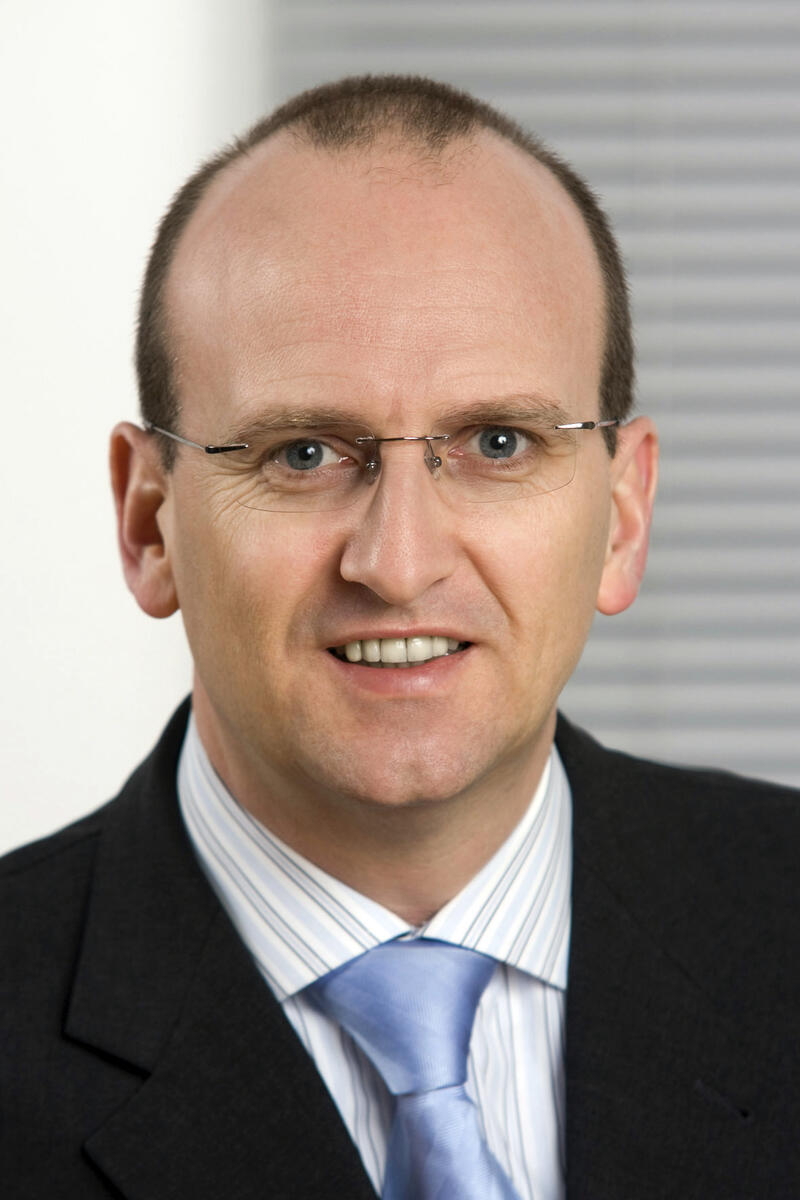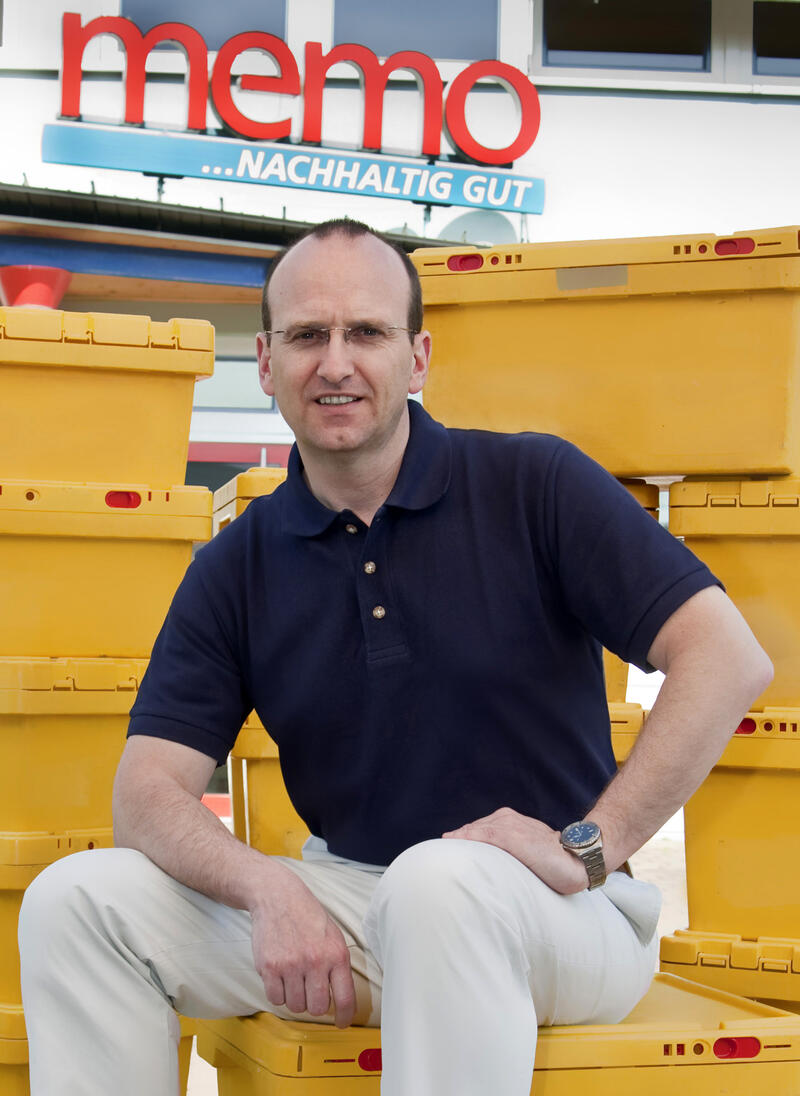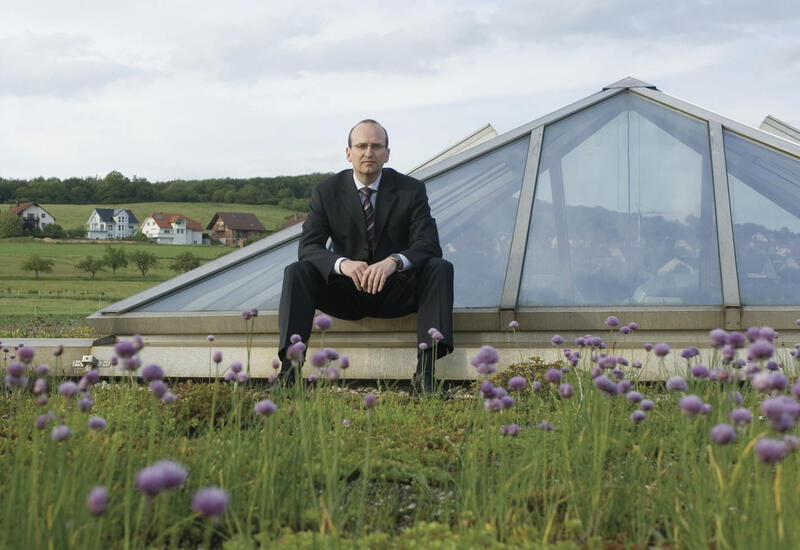“A shining example of a sustainable business model“
Greussenheim. “Jürgen Schmidt is a trend-setter in sustainability: he takes business decisions on the basis of ecological and ethical conviction and ambitious economic goals. Whether selecting product ranges, dealing with logistics or carrying out location and human resources management: at memo AG, the environment, social concerns and economic aspects go hand in hand. Schmidt has built up an exemplary business that greatly enhances the environmental compatibility of everyday products and enables the protection of resources on a daily, large-scale basis.” – This is how Dr Fritz Brickwedde, secretary-general of the Deutsche Bundesstiftung Umwelt (DBU), today announced the presentation of the 2011 German Environmental Award of the DBU to the associate, co-founder and board spokesman of memo AG (Greussenheim), Jürgen Schmidt (48). German President Christian Wulff will present Schmidt with the award, the most lucrative environmental prize in Europe, in Stuttgart on 30 October. The prize money totals 250,000 euros.

© memo AG
memo AG shows "that sustainable business models can be very successful"
Brickwedde said that the holistic concept of a climate-neutral mail order business selling ecological products for office, school, home and leisure including logistics and distribution, together with a socially responsible, transparent company structure, represented a very special approach that reflected the personality of Schmidt and his team. He said the transparency made it possible for competitors in the sector to imitate the company’s concept: “memo AG acts as a model. It shows that sustainable business models can be very successful and that they don’t have to be based on technological innovations alone. The range of products in this climate-neutral mail order company, which is selected according to ecological, economic and social criteria, encourages consumers to make sustainable purchase decisions and thus brings about an urgently needed change of perspective on economic consumer behaviour,” the DBU’s secretary general noted.
Product range selected according to strict rules and the slogan "ecological, affordable, fair"
Brickwedde went on to say, however, that memo AG was more than just a model for other companies. He said that by offering good value for money and attractive products, the company contributed to making sustainability practical for everyday needs and appealing to the mass market. According to Brickwedde, the range of products on offer was chosen according to strict rules and the slogan “ecological, affordable, fair”, which made it easier on a daily basis to decide in favour of products that are ecologically and socially beyond reproach. He said customers were informed about the complex topic of sustainability by detailed texts on all the articles in the range. Because quite a large number of people could be reached while purchasing everyday office and household items, he said, the memo catalogue was outstandingly effective in promulgating sustainable ideas. “memo AG is an important interface between manufacturers, suppliers and customers and thus makes an important contribution to improving sustainability in production and to future-oriented consumer decisions in everyday life,” was Brickwedde’s summary.

© memo AG
Products tested for healthiness and eco-friendliness throughout the entire value chain
He described the rigour with which memo applied the principle of sustainability as “impressive”. He said that the products were tested for their healthiness and eco-friendliness during the entire value chain – from the raw materials, production, distribution and usage to recycling or disposal. If a product didn’t pass this strict testing, he said, it was not taken into the range. He added that if there were no suitable suppliers for an article that was in demand, memo itself took a role in product development, with 750 sustainable products being already manufactured by the company.
Evaluation of the effect of production on climate change and water consumption
Brickwedde gave the example of two washing and cleaning agents made by memo that had just been added to the range, whose compatibility with humans and environment had been rigorously ensured. All their ingredients were natural, palm oil was not used, they had not been tested on animals and they contained no animal-derived substances, he said. He also described how a lifecycle analysis had been made of a T-shirt with an Indian partner; it included an evaluation of the effect of production on climate change and the amount of water consumed. Various certificates, including the relatively new “Global Organic Textile Standard” (GOTS), attested to the high ecological standard of the product, Brickwedde said. He said that analyses like this one were to be regularly carried out in future, especially on memo-brand products, as a part of processes of product selection and optimisation, which were also implemented with “Fairtrade” aspects in mind.
Company building and fleet of vehicles also conceived and put together according to principles of sustainability
Brickwedde also highlighted the fact that the company’s building and fleet of vehicles had been conceived and put together according to principles of sustainability. And, he said, exemplary personnel structures such as flat hierarchies, a dialogue-oriented corporate culture and worker participation produced a very positive effect: there was little personnel fluctuation and very few days of illness.

© memo AG/Hüttermann